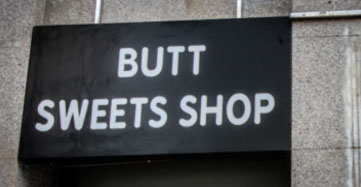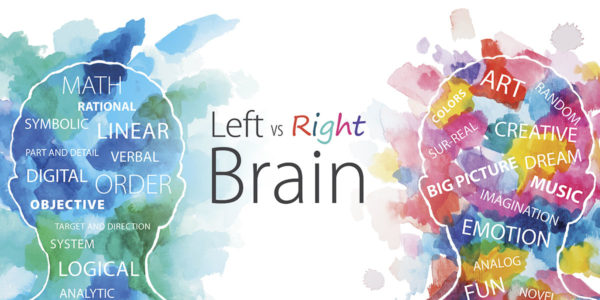Sometimes the missing link between a brand and the hearts of the Chinese people is not habitual, but lingual. What a brand positions itself as in the West means an altered version of itself in the East. Why? Because words are like humans: what counts is what’s on the inside.
For example, when I speak to a Chinese person and I tell them I went to sleep very late, I’m trying to communicate that by the time I was going to sleep, I was counting minutes until the sun would come up again. I, as well as most native American-English speakers, come from a culture that embraces nightlife, and the term “late” means well after midnight. The Chinese person I may be speaking to will translate “late” to “wan” in their own cultural context, and will lose the accuracy of the details in my report. Coming from a culture that comes home to the family at the end of the workday, wan to them may mean as early as 9pm, my dinnertime.
Any given word is a concept, any concept is unique to its context, and that context is never included in the translation of the word. Male means so much more than a person with the corresponding anatomy; it is a complexity of gender roles that takes into account history and cultural expectations of masculinity. Chinese also has a word that means male: nan. But nan’s nuances are different than those of male’s. They’re shaped by five thousand years of Chinese culture and history.
As too many companies have learned, a global slogan haphazardly turned Chinese is recipe for disaster. Those notorious unnecessary and preventable translation errors such as KFC’s Finger Lickin’ Good becoming Eat Your Fingers Off in Chinese may seem to be the extreme of disastrous translation, but even brands who correctly match diction and syntax may suffer from a cultural lack of forethought.
A great example of this is Fanta, whose slogan “Less Serious” attracts household mothers in the West, who, nostalgic for their own carefree childhoods, buy the product wishing the same for their children. In China, “Less Serious” is a nightmare for mothers, who do all they can to make sure that their children stay focused on their academics, so that they can have successful and prosperous futures.
Fanta, luckily, found a way to reconcile these cultural differences by defining itself as an academic brand in China, offering Chinese students a more fun and less serious way to learn. Its most successful campaign has been an educational but fun mobile app (Fanta calls it “The 9th class”), intended for students to take out in between and after their 8 school classes and use their free time playing the app to both relax and to enrich their minds. Fanta Video
The app, officially called “The Big Orange Squeeze”, invites players to press a button to throw an orange into a giant glass bowl. The game is to guess how many oranges need to be thrown into the bowl before the pressure accumulates enough to squeeze juice out of a funnel. The app features other educational quizzes and games, such as an experiment where players have to guess whether a hot, frozen or normal orange thrown from a certain height will burst.
Another brand that faced this issue but was able to maneuver past it is Johnnie Walker Beer. Johnnie Walker is about All-Americanism.
It’s about nostalgia for traditional American values and culture. It’s accessible. It’s affordable for the average American. It’s the beer a father buys his son when they sit back and watch a game on the family room couch. Nostalgia is typically a huge seller, but the Chinese, unfortunately for Johnnie Walker, aren’t nostalgic for the old American days.
Needless to say, Johnnie Walker was struggling in China. And it knew that it either needed to step up, or that maybe it was time for Walker to walk away.
The R&D team at the whiskey company began to inquire Chinese people about what they wanted. Across the board, they found a general “parents’ frustration at their inability to will their child to become a rich, filial and well-educated CEO,” and a corresponding generation of Chinese “who believe that nothing is ever good enough for their parents or society at large.” To sell in China, Johnnie Walker needed to connect to this Chinese desire for immediate status and success.
Unfortunately, Johnnie Walker did not have what it takes to be noticed as a status symbol in China: a high price and the illusion of newness. So, unable to connect with what the Chinese defined as the ultimate success, they decided to change the definition.
Johnnie Walker launched a campaign in China that promoted a “warts-and-all” reality of success.
They pronounced to the frustrated Chinese, “There are more than one million millionaires in China, but almost all of them have made their fortune in the past three decades. Prestige and money haven’t been inherited; they’ve been earned the hard way, with bumps and scrapes along the road.”
Through a series of short online documentaries, they redefined the conversation around success in China. They remade a culture, bringing the Thomas Jefferson ground up, hard work approach that is so infamous in America to China. The beer about All-Americanism brought All-Americanism to China. It defined a category to which it self-identified.
Another brand that successfully redefined the concept word that it stood for was DeBeers, “A Diamond is Forever.” Greater China CEO of JWT explains, “In America, De Beers’ slogan, “A Diamond is Forever,” glorifies eternal romance. In China, the same tagline connotes obligation, a familial covenant—rock solid, like the stone itself. In the PRC, where the clan, not the individual, is the basic building block of society, marriage is less a union of two souls than two extended families.” (China Observer, 2012) They’ve adapted to China successfully marketing a China-specific Forever, one that denotes an ever-lasting commitment to family, a key part of Chinese society.
By far the most interesting example of disconnecting a concept from its original meaning through cross-cultural translation is Mattel’s “Barbie”—a loaded term in the West with essentially no meaning in the East. Mattel, not realizing the possibility that some Chinese people hadn’t even heard of Barbie, decided to introduce the product line to China by launching a 38,000sq. ft. six-story flagship store, costing the company $30 million. When the store first opened in 2009, Mattel was overly optimistic, claiming, “Girls of all ages will love it,” probably because Mattel decided to include a hair salon, a bar and a $15,000 adult-sized Vera Wang Barbie gown within the Barbie Mansion.
Needless to say, the store ended up being a bit of an embarrassment for Mattel and closed in only two years.
“According to The Wall Street Journal, Chinese consumers thought Barbie wasn’t serious enough and wanted a better role model for their daughters…Mattel didn’t quite understand what Chinese girls and young women want. The Chinese concept of “femininity” is very different from that of American. In China, “feminine” is more about sweet and soft rather than smart and strong, more about gentle and loving rather than dazzling and fashion-forward.” That is, the word for feminine exists in both US and Chinese cultures, as does the concept. But in Chinese, it comes with Chinese nuances that just aren’t eclipsed in the American definition and that Mattel didn’t account for. “It’s clear Mattel didn’t do its consumer research.” They marketed the American “feminine” and not Chinese. Now, Mattel is hoping to make its come back in China by announcing a Barbie educational toy line. Hopefully, they’ve learned from their first Barbie disaster.
References for this post:
- “Barbie In China: Mattel To Open Barbie Superstore In Shanghai.” Huffington Post. N.p., 4 Mar. 2009. Web.
- Doctoroff, Tom. “Buying a Piece of America: Why Chinese Shoppers Love U.S. Brands.” The Atlantic. N.p., 24 May 2012. Web.
- Doctoroff, Tom. “What Chinese Consumers Want.” Huffington Post. N.p., 27 May 2012. Web.
- Grgurich, John. “Why China Doesn’t Like Barbie, Best Buy or DIY.” Daily Finance. N.p., 20 May 2012. Web.
- Nilsson, Erik. “All In The Name Game.” China Daily. N.p., 16 Nov. 2012. Web.
- Wang, Helen H. “Why Barbie Stumbled in China and How She Could Re-invent Herselfhy Barbie Stumbled in China and How She Could Re-invent Herself.” Forbes. N.p., 24 Oct. 2012. Web.
- “WHAT CHINESE CONSUMERS WANT: INTERVIEW WITH TOM DOCTOROFF.” The China Observer. N.p., 25 July 2012. Web.













